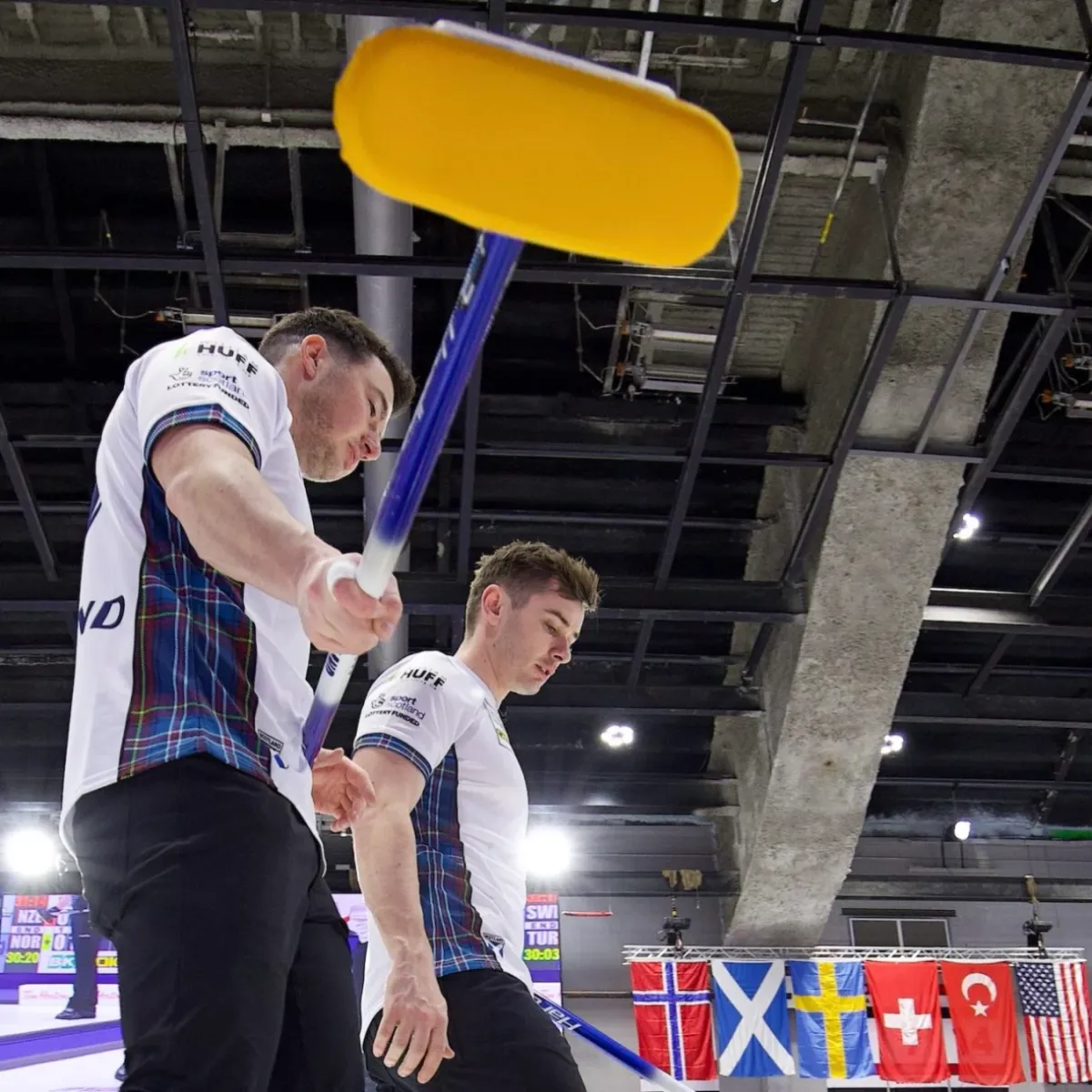The Second Coming of Broomgate?

The ongoing debate surrounding curling equipment, dubbed "Broomgate 2.0," has resurfaced at the 2025 WFG Masters, sparking tensions among top curling teams. The controversy centers around two new broom models: the BalancePlus RS 2.0 Firm and the Goldline Pursuer. While these brooms meet World Curling's specifications, many players argue that they offer too much control over the rock, potentially undermining the spirit of fair competition in the sport.
In the lead-up to the Grand Slam of Curling tournament, 30 top men's and women's teams signed a letter addressed to World Curling, urging the governing body to reconsider the approval of these brooms. The players believe that the technology behind these models could significantly alter the balance of the game, giving sweeping too much influence over the trajectory of the stone. The letter calls for the development of a new, universally accepted foam material that would offer a better balance between performance and fairness.
In response to the controversy, several teams, including those sponsored by Goldline, decided not to use the controversial brooms at the WFG Masters. Team John Epping, who was already facing pressure from fellow competitors, opted for a different broom model after being urged by other players to comply with the request. Epping, in his first Grand Slam with a new team, expressed his frustration with the lack of direct communication between teams, yet emphasized his commitment to the spirit of curling. Despite the tension, he remained focused on competing at the event.
This latest controversy is reminiscent of the original Broomgate scandal from 2016, when sweeping technology was found to give players too much control over the direction of the stone. The scandal led to a sweeping summit and the creation of new regulations aimed at limiting the broom’s directional influence. Skip Brad Jacobs, a vocal advocate for fair play, has reiterated the importance of maintaining the integrity of the sport. He argued that sweeping technology should not overshadow the skill of the thrower and called for greater transparency and collaboration among athletes, manufacturers, and governing bodies.
The issue flared up again during the holidays when a group of players tested the new 2.0 Firm brooms and noticed unusual effects on the stone's trajectory. The players expressed concerns that these brooms might tip the balance of the game in favor of sweeping, rather than shot-making. With memories of the acrimony from the 2016 debate still fresh, many hoped to avoid a repeat of the divisiveness it caused. Despite the tension, there was a shared desire among players to address the issue collectively and prevent unnecessary conflict.
Matt Dunstone, a member of the Grand Slam of Curling players' council, acknowledged the challenge of balancing sponsor obligations with the desire for fairness. While manufacturers compete for dominance in the curling market, the players remain primarily focused on ensuring a level playing field. Dunstone emphasized that the goal was not to eliminate sweeping but to ensure that the outcome of a game depends on shot-making rather than an advantage gained from equipment.
Team Epping, however, expressed frustration at being left out of the discussions. Epping noted that he was not directly contacted by other teams before the issue became public and questioned whether the push to restrict certain brooms was truly about fairness, or if other factors were at play. He emphasized that his team complied with World Curling's regulations and tried to stay focused on the tournament despite the distractions. Epping’s response highlights the complexity of balancing personal and team interests with broader concerns about the integrity of the sport.
In response to the players’ concerns, World Curling issued a statement affirming that the brooms in question met their regulations but acknowledged the need for a comprehensive review of the equipment specifications. The organization committed to working with manufacturers and players to ensure that the approval process remains transparent and fair. Jacobs, however, called for more direct engagement with athletes, stressing the need for open communication to shape the future of the sport.
As the controversy continues to unfold at the WFG Masters, players remain focused on upholding the values of curling while seeking a resolution that ensures fairness and transparency. With support from equipment manufacturers like Goldline, Hardline, and Asham, players are hopeful that the issue can be resolved in a way that preserves the integrity of the sport for future generations. Through collaboration and a commitment to fair play, they aim to ensure that curling continues to be a sport where skill, not equipment, determines the outcome.



